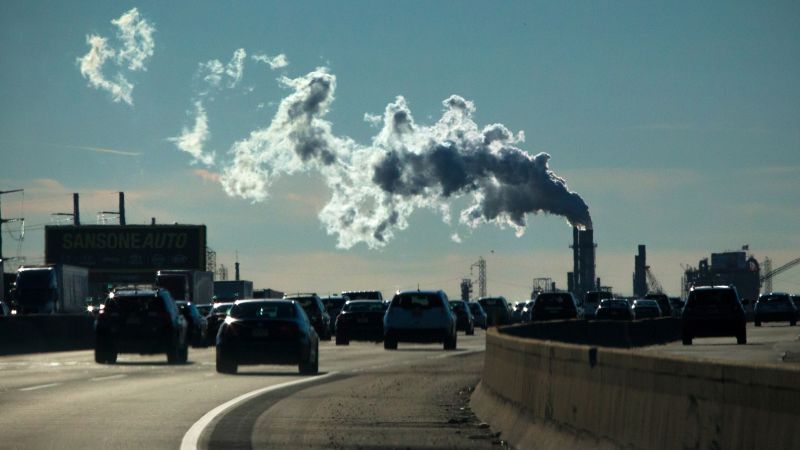On a recent episode of CNN’s “State of the Union,” Environmental Protection Agency Administrator Lee Zeldin defended the Trump administration’s move to repeal the significant endangerment finding that established fossil fuel pollution as a threat to human health. The endangerment finding, originally issued in 2009, was critical as it provided the scientific basis for numerous EPA regulations aimed at reducing environmental harm and combatting climate change. By attempting to repeal this finding, the administration seeks to undermine what has been one of the federal government’s primary mechanisms for addressing climate pollution.
Zeldin emphasized a shift from the data and assumptions of 2009, asserting that many of the dire scientific predictions made at that time did not fully materialize. “To reach the 2009 endangerment finding, they relied on the most pessimistic views of the science,” he claimed. Instead, he suggested that more recent facts could be utilized to inform new decisions regarding climate change and related policies, framing the ongoing discourse as one of reassessing past judgments through a contemporary lens.
Critics of the repeal are concerned that nullifying the 2009 finding could considerably diminish the federal government’s ability to regulate greenhouse gas emissions effectively. This is critical as the U.S., while currently the world’s second-largest emitter of greenhouse gases, has historically contributed more pollution than any other nation. Numerous scientific studies over the past decade and a half have substantiated the idea that climate change is not merely a theoretical threat, but a real and present danger to public health, with evidence linking climate pollution to severe health outcomes.
Zeldin’s comments do not align with a consensus that has strengthened over the years regarding the significant health impacts of climate pollution. Climate scientist Zeke Hausfather pointed out that the past sixteen years have seen an increase in the certainty surrounding the dangers posed by climate change. He stated unequivocally that no credible evidence has emerged to refute the foundational science that underpinned the 2009 endangerment finding. This growing body of scientific evidence counters Zeldin’s assertion that the health risks anticipated in 2009 have not materialized to the expected levels.
As for the current regulatory landscape, the Trump administration’s proposal to repeal the endangerment finding directly impacts many existing regulations related to vehicle emissions, given that those policies stemmed from the 2009 finding. The EPA is currently engaged in a public comment period regarding its proposal, a process that Zeldin highlighted as part of a thorough approach to decision-making on environmental regulations.
Zeldin also addressed potential confusion regarding his stance on climate change, rejecting any insinuations that he was dismissive of the prevailing scientific agreement. “That might be your way to try to twist my words,” he stated when asked if he was skeptical about the role of greenhouse gases in climate change.
When questioned about the EPA’s responsibilities in the context of climate change, Zeldin maintained that he is bound by the law as established by the Supreme Court. He referred to the challenges in interpreting legislation and highlighted his obligation to adhere strictly to the legal frameworks without embellishment or personal interpretation. He emphasized that any significant policy changes should emerge from Congress rather than being subject to executive interpretation.
In conclusion, the debate surrounding the repeal of the 2009 endangerment finding encapsulates a broader contention about the United States’ approach to climate regulation. As Zeldin and other proponents of the repeal argue for a revised understanding of climate science and regulatory powers, critics are vehemently opposed, citing mounting evidence of climate change’s undeniable impacts on health, safety, and the environment. The ongoing discussion will undoubtedly shape the future of U.S. climate policy in the years to come.











